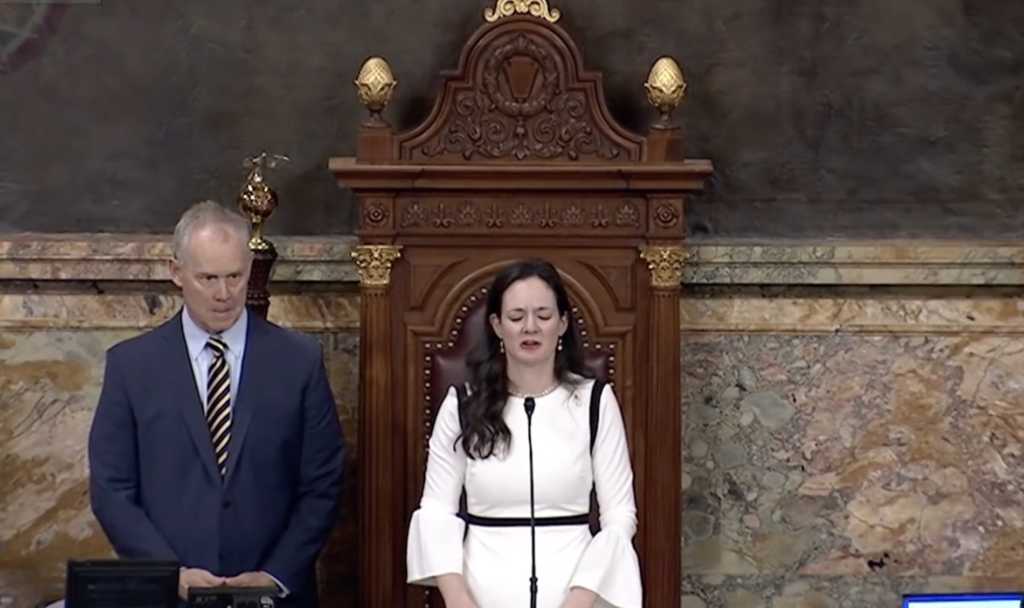A federal appeals court has ruled barring atheists from providing invocations at the start of legislative sessions does not, in fact, violate the U.S. Constitution.
Late last week, a three-judge panel on the U.S. Court of Appeals for the Third Circuit reversed a lower-court decision, ruling the Pennsylvania House of Representatives’ invocation policy is perfectly constitutional.
Circuit Judge Thomas Ambro wrote in the majority opinion that the policy is legal “because only theistic prayer can satisfy the historical purpose of appealing for divine guidance in lawmaking, the basis for the Supreme Court taking as a given that prayer presumes a higher power.”
Ambro, who was appointed by former President Bill Clinton, ruled against petitions from the Wisconsin-based Freedom From Religion Foundation, whose attorneys claimed the Pennsylvania policy violated free speech rights as well as the Establishment Clause of the Constitution.
The court argued, however, that legislative prayer is a form of “government speech,” and as such, is not susceptible to attack from those who claim it is at odds with free speech rights or in violation of the Establishment Clause.
Pennsylvania House Speaker Mike Turzai, a Republican, supports the state policy on invocations.
His lawyer, Karl Myers, defended the policy in a statement:
The House’s practice of beginning its legislative sessions with prayer dates back to the earliest days of our commonwealth and our nation and the current House practice is simply a continuation of that historical tradition.
Ambro went on to argue Congress has given leeway for theistic prayer, noting the federal legislative body “urged President [George] Washington to proclaim ‘a day of public thanksgiving and prayer, to be observed by acknowledging with grateful hearts, the many and signal favors of Almighty God.”
Put simply, the 2-1 decision makes clear that only theistic prayer meets the standard for legislative invocations because prayer — by its very nature — assumes the existence of a higher power, disqualifying atheists from authentically participating in it.
Brian Fields, one of the plaintiffs, posted in a tweet that he found the court’s decision “very disappointing.”
All of this garnered attention earlier this year when a Christian lawmaker in the Pennsylvania House of Representatives was accused of “weaponizing the name of Jesus” while delivering the invocation in front of a Muslim lawmaker.
State Rep. Stephanie Borowicz (R) spoke for about two minutes about Jesus, Gov. Tom Wolf (R), President Donald Trump, and Israel.
After facing backlash, Borowicz stood her ground. She said she has no reason to apologize, telling reporters, “I don’t apologize ever for praying.”



